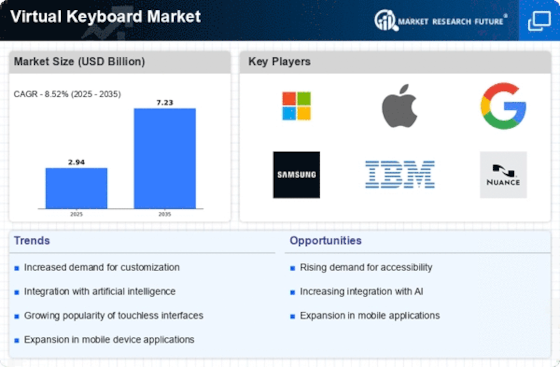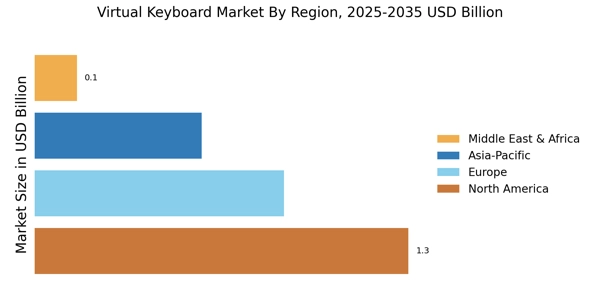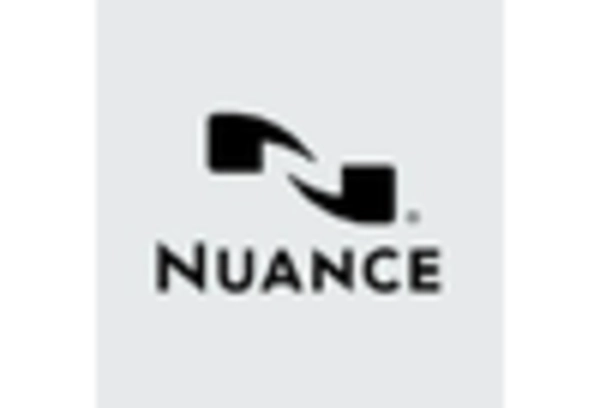Surge in Remote Work and Learning
The surge in remote work and learning is a pivotal driver for the Virtual Keyboard Market. As more individuals engage in telecommuting and online education, the demand for efficient and versatile input methods increases. Virtual keyboards provide a practical solution for users who require flexibility in their typing experience, whether on laptops, tablets, or other devices. Market analysis suggests that the remote work trend is likely to persist, which may sustain the demand for virtual keyboards. This shift in work and learning environments underscores the importance of adaptable technology in the Virtual Keyboard Market.
Growth of Mobile and Smart Devices
The proliferation of mobile and smart devices is a significant driver for the Virtual Keyboard Market. As smartphones, tablets, and smart TVs become ubiquitous, the need for efficient input methods rises. Virtual keyboards offer a flexible solution that adapts to various screen sizes and orientations, enhancing user experience across devices. Market data indicates that the smartphone market continues to grow, with millions of units sold annually. This trend suggests a corresponding increase in demand for virtual keyboards, as users seek seamless input methods that complement their mobile lifestyles.
Rising Demand for Touchless Interfaces
The increasing demand for touchless interfaces is a notable driver in the Virtual Keyboard Market. As consumers seek more hygienic solutions, the appeal of virtual keyboards, which eliminate physical contact, becomes more pronounced. This trend is particularly relevant in environments where cleanliness is paramount, such as healthcare and food service sectors. According to recent data, the touchless technology market is projected to grow significantly, which may correlate with the rising adoption of virtual keyboards. The convenience and efficiency offered by these interfaces are likely to attract a broader user base, further propelling the Virtual Keyboard Market.
Advancements in Artificial Intelligence
Advancements in artificial intelligence (AI) are transforming the Virtual Keyboard Market. AI-driven features, such as predictive text and voice recognition, enhance user experience by making typing more intuitive and efficient. The integration of AI allows for personalized suggestions, adapting to individual typing habits and preferences. This technological evolution is expected to drive market growth, as users increasingly favor solutions that streamline their interactions with devices. The AI market is anticipated to expand, which could positively impact the Virtual Keyboard Market by fostering innovation and attracting tech-savvy consumers.
Increased Focus on Accessibility Features
The growing emphasis on accessibility features is shaping the Virtual Keyboard Market. As organizations and developers prioritize inclusivity, virtual keyboards are being designed to accommodate users with disabilities. Features such as customizable layouts, voice input, and haptic feedback enhance usability for individuals with varying needs. This focus on accessibility not only broadens the user base but also aligns with regulatory requirements in many regions. The commitment to creating inclusive technology is likely to drive innovation within the Virtual Keyboard Market, fostering a more diverse range of products.
















